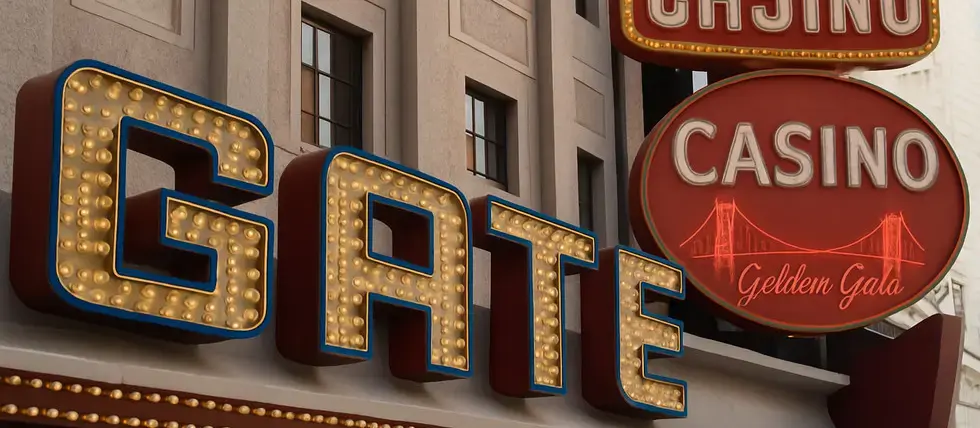Derek Stevens Buys Land Under Historic Golden Gate
Derek Stevens has purchased the parcel beneath the Golden Gate hotel-casino in downtown Las Vegas.

Stevens Finalizes $19 Million Land Purchase Under Golden Gate
The casino owner confirmed that the $19 million transaction for the land under the Golden Gate closed last week, according to county and state property records. Stevens, who already owns and operates the Golden Gate, said the purchase gives him ownership of both the business and the ground beneath the compact downtown property at 1 Fremont Street.
The land was sold by descendants of John F. Miller through a long-established corporate entity, Sal Sagev Hotel Co. Inc., a company originally formed in 1908. Sal Sagev – the name Hotel Nevada took on in 1931 as Las Vegas spelled backwards – held the plot since Miller acquired it at an early 20th-century land auction that helped spur Las Vegas’ development.
Stevens said he first met members of the Miller family when he and his brother bought a 50 percent stake in the Golden Gate nearly two decades ago and subsequently took full ownership in 2015. At that time, Stevens said he and the family agreed to extend the ground lease on the property through 2061. He added that the family had been reluctant to sell the land previously because they wanted assurance the property would remain in steady hands.
"It cost us a lot of money," Stevens said, acknowledging the premium he paid to consolidate land and operations. He told reporters he preferred owning the footprint outright rather than continuing to operate under a long-term ground lease from an outside landlord – the arrangement many Strip resorts now have with large real estate investment trusts.
Attempts to reach James Reynolds, president of Sal Sagev Hotel Co. and described by Stevens as the great-grandson of John F. Miller, were not successful.
More Business News
What the Purchase Means for Downtown Las Vegas
The Golden Gate sits at the western edge of the Fremont Street Experience and is one of downtown’s most storied addresses. The hotel originally opened in 1906 as the Hotel Nevada; later, in the 1950s, investors from San Francisco converted the site into the Golden Gate casino. Over the decades the property has accumulated a string of local firsts – including an early telephone installation and an early outdoor electric sign that prefigured Las Vegas’ neon era – and today presents a mix of small-scale gaming space, curated historical displays and a boutique hotel footprint.
Ownership of the underlying land removes a long-running structural constraint for Stevens’ downtown holdings, which also include the D Las Vegas and Circa, the latter a high-profile new resort he opened in 2020 that marked downtown’s first newly built major resort in four decades. Controlling the ground gives Stevens greater flexibility for long-term capital planning, potential redevelopment and estate management compared with running on a ground-lease model.
Industry observers say land ownership has become a strategic lever for land-based casino operators who want to control operations and future development without sharing returns with third-party landlords. In contrast, many Strip properties operate on land leased from REITs and private owners, a model that can limit operators’ options for financing or major renovation projects.
For visitors, the Golden Gate remains a compact historical stop amidst downtown’s entertainment corridor. Recent investments by Stevens’ ownership group included a five-story hotel addition in 2012 and larger casino-floor renovations in 2017, alongside design touches that highlight the property’s early-20th-century legacy. Inside, display cases and period artifacts recount the hotel’s past, from 1930s hand towels to 1950s chip racks and a plaque noting the hotel’s original phone number “1.”
With the land purchase now complete, Stevens has unified ownership of one of downtown’s oldest parcels and its operating business, a rare consolidation in a market where land and operations are often separated. For downtown’s tourism economy, the deal is a reminder that investors continue to see value in preserving and controlling legacy casino real estate even as larger-scale development reshapes the Strip and surrounding neighborhoods.
RELATED TOPICS: Business
Most Read
Mississippi Committee Advances Bill to Criminalize Online Sweepstakes Casinos
Jan 29, 2026Giuseppe Iadisernia Wins Seminole Hard Rock Lucky Hearts Poker Open Championship
Jan 28, 2026Must Read
 Interviews
Interviews
Exclusive Interview: Levon Nikoghosyan Shares AffPapa Winning Formula for Successful iGaming Events
Dec 03, 2025 Interviews
Interviews









Review this New Post
Leave a Comment
User Comments
Comments for Derek Stevens Buys Land Under Historic Golden Gate